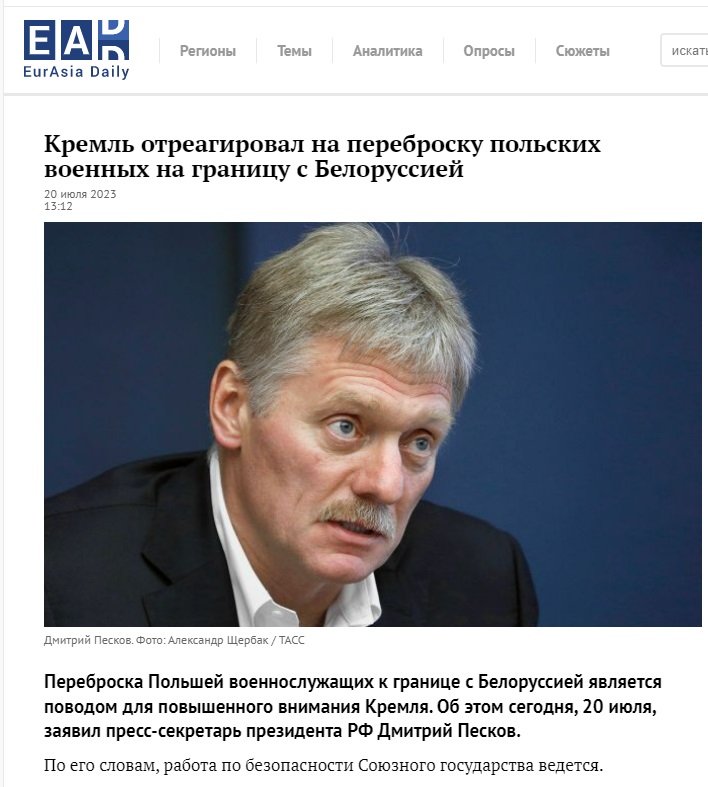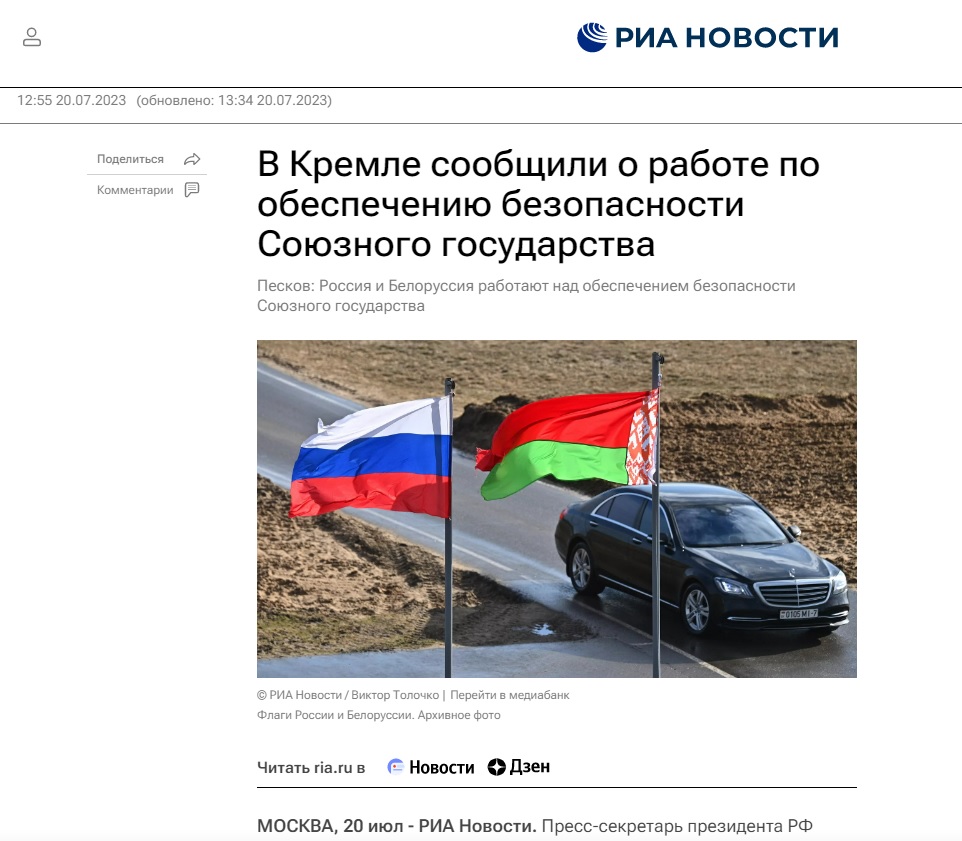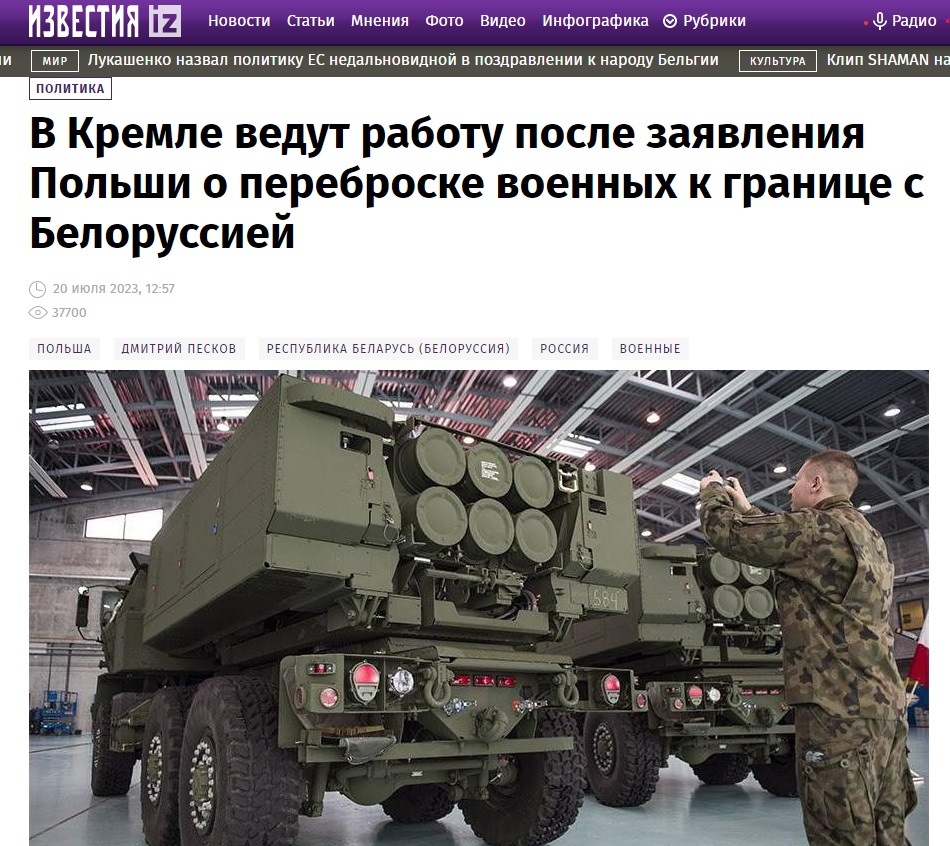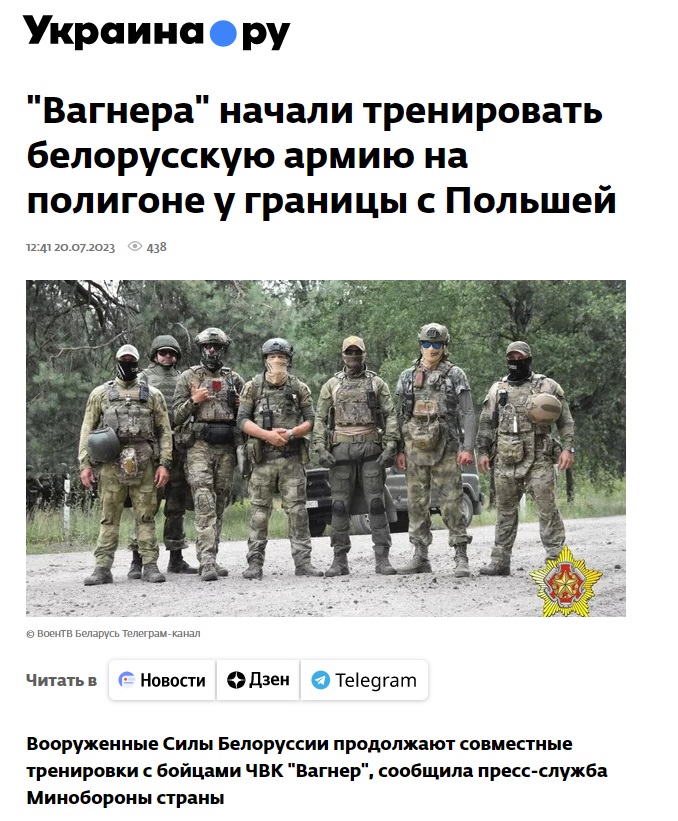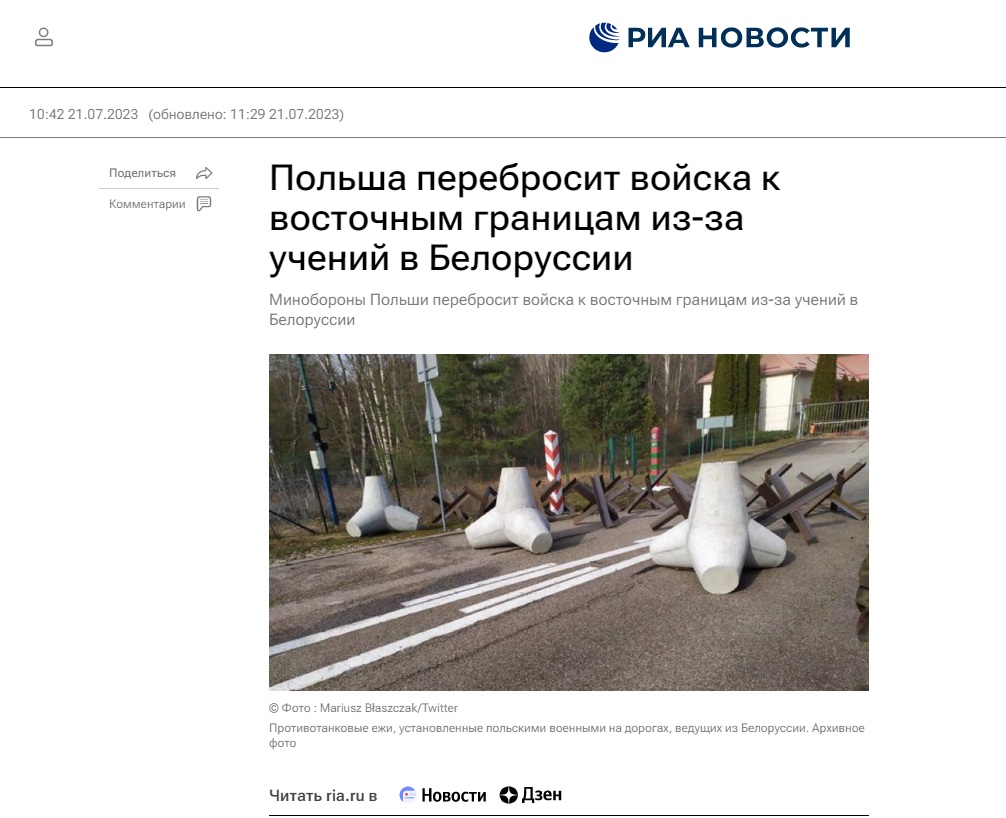One of the chronically developed lines of influence of the Russian disinformation apparatus concerning issues related to Poland is the creation of our country as a threat to the Belarusian state. Measures in this area were strengthened on July 20, 2023, as manifested by the mobilisation of Dmitry Peskov (spokesman for the President of the Russian Federation), who, through his statement, pointed to Poland as a country “pursuing an aggressive policy” towards Russia and Belarus.
According to a well-known mechanism used by the Russian Federation, in order to publicise a given message, a “widely respected authority” that represents the state must be activated. This stimulates media with minimal independence to pay attention to the message in question and lends credibility – in the eyes of the public – to the interest in the topic manifested by media under the full control of the regime. The use of “serious authority” also attracts the attention of foreign media (e.g., Polish media – which unwittingly transposes the given message into its own infosphere).
Such action aims to consolidate a particular view/message, keep an issue on the state’s information agenda or introduce a message into the infosphere. In the present case, the issue is to establish and maintain the message on the news agenda. An example of introducing a message to the national information agenda was, for example, a statement by Sergei Naryshkin (Head of the Foreign Intelligence Service of the Russian Federation) regarding Poland’s alleged plans to occupy western Ukraine. It is worth noting here that in relation to the narratives about Poland, the key “serious authorities” are still Maria Zakharova, Dmitry Peskov, Sergey Naryshkin and Vladimir Putin. Mobilising these people allows Moscow to make twists in the message or introduce new narratives (at the national level).
In the above case, D. Peskov’s statement launched the entire Russian disinformation machine. At almost the same time, a message about an “aggressive Poland” once again preparing to attack Belarus and Russia resonated on key Russian news portals, alternative portals, Telegram channel networks and through anonymous accounts, as well as pro-Russian foreign propagandists operating on social networks (which includes Poland). In doing so, these sources emphasised that Poland was redeploying additional forces to the east of the country, which was presented as evidence of our country’s “aggressive intentions”.
The issue of the presence of soldiers of the so-called “Wagner Group” (de facto Russian forces) in Belarus is also highlighted as part of this activity, which is used to influence the Polish infosphere. On the one hand, the actions in question serve to intimidate Poles with the vision of the presence of a “powerful grouping” in Belarus, whose presence “radically changes the situation”. On the other hand, the factor in question is presented as an “artificially exaggerated argument by Poland”, with which Warsaw covers up “preparations for armed aggression”. Activities in the discussed measures were also developed on July 21, 2023.
The common denominator of the variants mentioned above boils down to the creation of Poland as an aggressive country preparing for an armed attack on a neighbouring state, which may influence the outbreak of World War III. The use of Dmitry Peskov as part of a given activity is an action that serves, among others, to spill a given narrative to the West. More broadly, this is part of an effort over many months to persuade recipients of Russian messages (particularly from Western European countries, Africa, South America and China – creating a base for action that Beijing can take) that Poland and NATO is the “aggressive” party, the “guilty” party in the war in Ukraine and the party preparing to “provoke another war”.
Author: dr Michał Marek
Public task financed by the Ministry of Foreign Affairs of the Republic of Poland within thegrant comp etition “Public Diplomacy 2023”
Fot. AdobeStock

